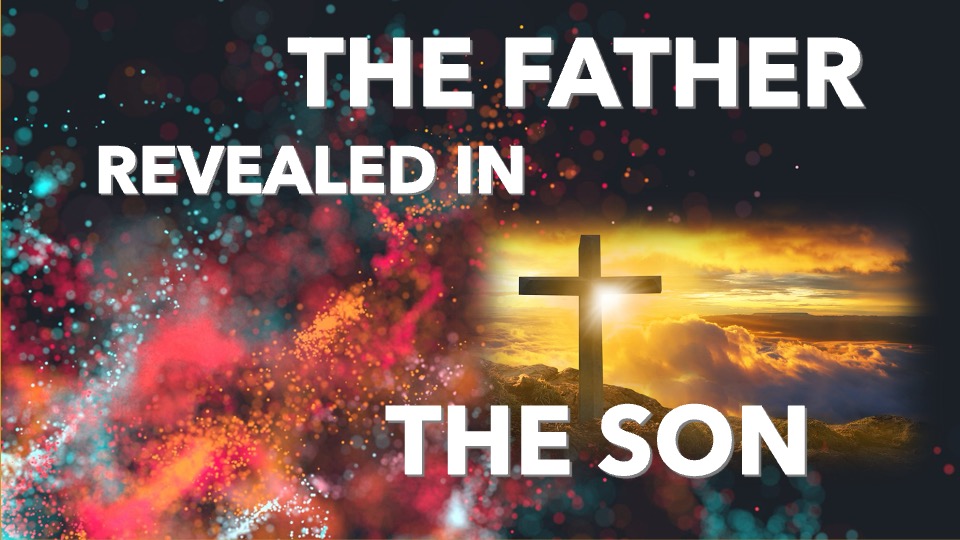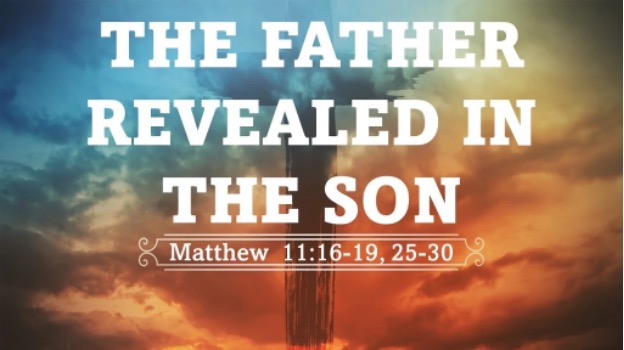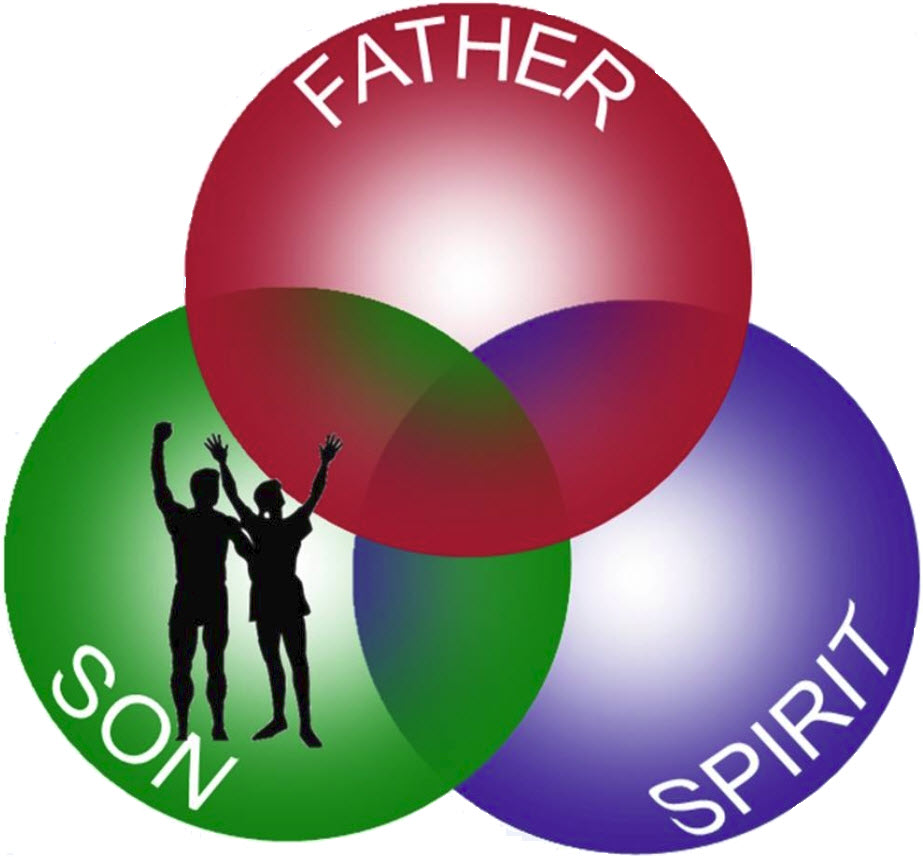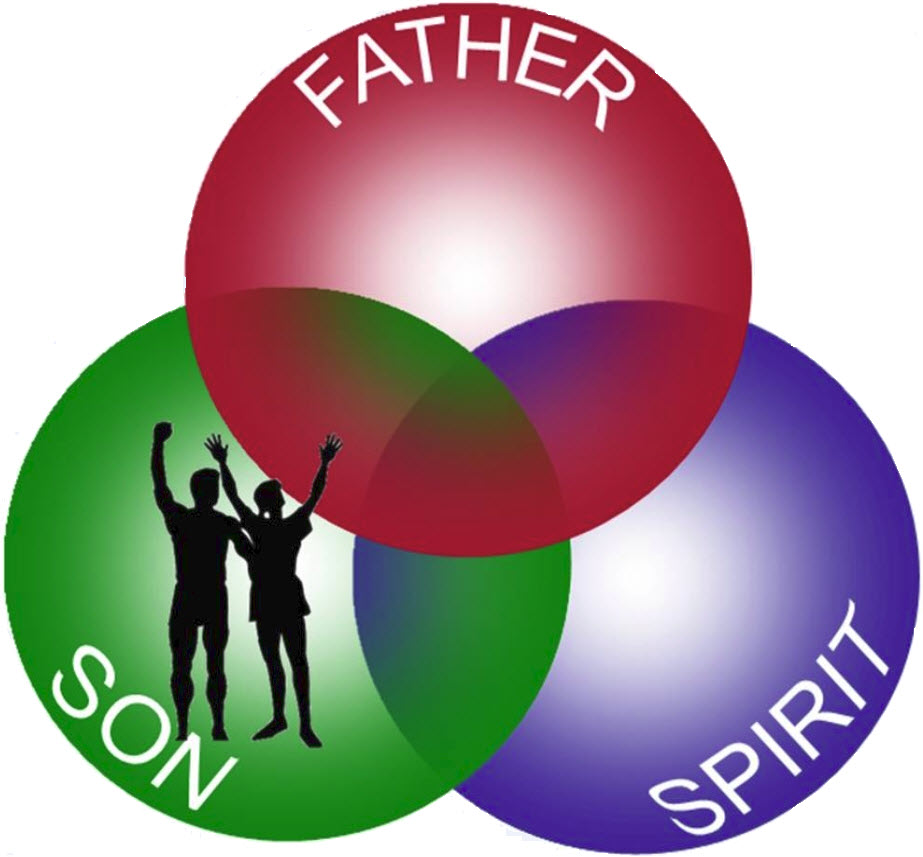Archive for the ‘New Life Fellowship Of Baltimore Maryland’ Tag
“Who Is Jesus? God and Man Revealed!” Pt 1
Part 1A:
Part 1B:
Full Message:
Scripture: John 1
Summary:
The sermon by Pastor Timothy Brassell, titled “Who is Jesus? God and Man Revealed,” proclaims The Father-Son-Holy-Spirit-God revealed in Jesus. It explores the nature of Jesus Christ as both divine and human. He discusses Jesus embodying complete godliness and humanity without compromising on either aspect. The sermon emphasizes the importance of understanding this union of natures to grasp the full identity and work of Jesus Christ, particularly how this relates to Christian faith and salvation.
Context:
It emphasizes Christian doctrinal teachings about Jesus’s nature as both divine and human – deepening their faith understanding. The teachings are rooted in traditional Christian orthodoxy, reflecting ongoing discussions within theological circles about the nature of Christ and its implications for faith and practice. The emphasis on historical and scriptural validation seeks to ground contemporary faith practices in early Christian teachings.
These are some highlights:
📖 Trinitarian Framework: The pastor emphasizes the Trinitarian view of God—Father, Son, and Holy Spirit—as fundamental to understanding Jesus’s identity.
👨👦 Divine and Human Nature: Jesus is presented as both fully God and fully man, a theological stance that underscores his unique role in salvation history.
📚 Scriptural References: Extensive scripture references, particularly the New Testament, highlight how biblical texts assert Jesus’s dual nature.
⛪ Historical Creeds: The significance of historical creeds like the Nicene Creed is discussed, stressing their role in defining orthodox Christian beliefs about Jesus.
🙏 Practical Implications: The sermon connects these theological points to practical Christian living, urging believers to align their lives with the truth of Jesus’s nature.
Photo Credit:
worldchallenge.org
“A Divine Calling!”
Word of Life Devotional by Sherwin Scott
Therefore, holy brothers [and sisters], you who share in a heavenly calling, consider Jesus, the apostle and high priest of our confession…
Hebrews 3:1 (ESV)
Many people consider themselves to be called to a specific profession or service. They believe that they have been called to be doctors, lawyers, and teachers, or to serve in the armed forces or the local or national government of their country. Maybe they feel they are called to be the leader of a nation as president or prime minister.
Believers in Jesus Christ have received a specific and definite calling into his fellowship. The Apostle Paul explains in 1 Corinthians 1:9: ‘God is faithful, by whom you were called into the fellowship of his Son, Jesus Christ our Lord.’ What exactly is ’the fellowship of his Son’? It is the holy, loving relationship of God the Father, Jesus the beloved Son and the Holy Spirit – a divine relationship that has existed from eternity and will continue forever!
Believers are blessed, privileged, and honored to be called to participate or share in this wonderful relationship. It doesn’t get any better – it is finding the pearl of great value (Matthew 13:45-46), the ultimate calling! And an amazing truth about this special calling is that it cannot be revoked as explained in Romans 11:29: ‘For the gifts and the calling of God are irrevocable.’
Relationships are very important to God, for God is in relationship: Father, Son, and Holy Spirit, a communion of love. And he wants us as his children to participate in the divine relationship, which will continue forever. With this divine calling there is no going back, for God takes no pleasure in anyone who draws back (Hebrews 10:36-38). There is only one way – marching forward into the fullness of God’s glorious kingdom.
Prayer
Heavenly Father, thank you for the invitation to participate in your beautiful relationship. Please help me to respond in a manner that is pleasing to you. In Jesus’s name I pray, Amen.
Study by Sherwin Scott
Photo Compliments: WorldChallenge.org
“Who is The Father Revealed in Jesus?” Pt. 2
Part 2A:
Part 2B
Full Message:
Scripture:
2 Cor 13: 14, Matthew 23: 8-11, John 17
Summary and Goal:
This sermon discusses the importance of understanding the relationship between God the Father, Jesus Christ, and the Holy Spirit. It emphasizes the deep love and joy that comes from being united with the Father through Jesus and the Holy Spirit.
“What I mean is this. An ordinary simple Christian kneels down to say his prayers. He is trying to get into touch with God. But if he is a Christian he knows that what is prompting to pray is also God: God, so to speak, inside him. But he also knows that all his real knowledge of God comes through Christ, the Man who was God—that Christ is standing beside him, helping him to pray, praying for him. You see what is happening. God (THE FATHER) is the thing (ONE) to which he is praying—the goal he is trying to reach. God is also the thing (ONE) inside him which is pushing him on—the motive power. God is also the road or bridge along which he is being pushed to that goal. So that the whole threefold life of the three-personal Being is actually going on in that ordinary little bedroom where an ordinary man is saying his prayers. The man is being caught up into the higher kind of life—what I called Zoe or spiritual life: he is being pulled into God, by God, while still remaining himself.” (P.163) – Mere Christianity by C.S. Lewis
Highlights:
👨👦👦 The Father, Son, and Holy Spirit are distinct persons in the Godhead.
👻 The Holy Spirit is not a commodity, but a person who hears, speaks, sees, inspires, and moves.
🎁 Everything we receive and do comes from the Father through Jesus and in the Holy Spirit.
😇 Joyous days in the Father surpass mere happiness and can be experienced even in affliction and distress.
❤️ The love of the Father is deep and unbreakable, even in the face of trials and persecution.
✝️ The Father’s love was demonstrated through Jesus’ sacrifice on the cross, which reconciled and saved humanity.
🤝 The relationship with the Father is shared through the participation in the Holy Spirit’s fellowship.
“Who Is The Father Revealed In Jesus?” Pt. 1
Pt 1A:
Pt 1B:
Full Message:
Scripture: Isaiah 40: 18-31, Isaiah 46: 3-13, Hebrews 1: 1-3, 1John5, Mark 12, John 17
Summary and Goal:
This sermon is about the importance of knowing and understanding the God and Father of our Lord Jesus Christ. The speaker emphasizes the supreme advantage and relevance of having a relationship with the Father-Son-Holy-Spirit-God as Revealed in Jesus Christ the God/Man.
Highlights:
🙏 Praying to the Father before the message
🌟 The twin doctrines of faith: Who is the Father? What is He doing?
👨👧👦 Father’s Day celebration and addressing everyone
🏛️ The foundation of Jesus Christ and the importance of building on it
📖 Scripture references and teachings on the Father
🌍 The Importance of God the Father for every family
💞 Implications of understanding and relating to God the Father
💡 Knowing the Father gives supreme advantage and relevance in life.
Photo compliments: smoodock45.wordpress
Who Is The Relational God Revealed In Jesus?, Pt. 2
Part 2A
Part 2B
Scripture: Acts 2:33, 2 Cor 13:14
Summary and Goal:
This Sunday, following Trinity Sunday, we continue proclaiming the relational God-Father-Son-Holy-Spirit Revealed in Jesus. This message is meant to help believers remember that the Father-Son-Holy-Spirit-God is not just an add-on doctrine of Christian faith, but that this God IS the Gospel! God the Trinity is “the root and nerve center” of all Christian belief. There could be no beliefs or doctrines apart from the Truth of Who God has revealed Himself to be in Jesus Christ. Indeed, there is no Christian faith apart from this relational God Who, in Love, sent Jesus Christ into our humanity to reveal Himself and share His Love and Life with us in the Holy Spirit. If you don’t get this basic understanding of the Gospel, you don’t get or understand Christianity. God’s primary revelation to us is the revelation of Himself! The scriptures are primarily about Him! We can only understand ourselves, and the scriptures in the Light of Who He is, or we cannot and do not understand either! Check it out!
Christ Connection:
Jesus alone reveals this God and, by becoming human, has given us human beings real knowledge of, and access to, God, through the Holy Spirit!
Photos compliments: trinityandhumanity.com (John Stonecypher)
Who Is The Relational God Revealed In Jesus?
Part 1A
Part 1B
Scripture: Acts 2:33, 2 Cor 13:14
Summary and Goal:
On this Trinity Sunday, we proclaim the relational God-Father-Son-Holy-Spirit Revealed in Jesus. This is an attempt to clarify further why this is so important to grasp, and what it means for our Christian faith. Indeed, there is no Christian faith apart from this relational God Who, in Love, sent Jesus Christ into our humanity to reveal Himself and share His Love and Life with us.
Christ Connection:
Jesus alone reveals this God and, by becoming human, has given us human beings real knowledge of, and access to, God!
Photos compliments: trinityandhumanity.com (John Stonecypher)
Pentecost And The Coming Of The Holy Spirit!
Part 1A
Part 1B
Scripture: Acts 1, 2
Introduction:
Summary and Goal:
Pentecost was the occasion following Jesus death, resurrection and
ascension when the Holy Spirit was sent as Jesus promised to his
disciples in Jerusalem. Peter proclaimed the fulfillment of the
prophecy of Joel 2:28-32.
Theological Theme:
Jesus Christ is the living Head of the Church, and to whom it looks and is
directed through the Holy Scriptures, by the indwelling Holy
Spirit.
Christ Connection:
Jesus lives in his followers through the presence of the Holy Spirit
indwelling and empowering them to fulfill the great commission of
proclaiming the good news of Jesus in the world.
Missional Application:
The Church, the body of Christ, is composed of people who trust in
Jesus and who are commissioned to make disciples of others in the world.
Photos compliments: pinterest.com
Sin and God’s Good News!

Scripture: Gen 3:1 – 4:8
Introduction:
Summary and Goal:
In the previous two sessions, we saw that God created everything good, including people as the pinnacle of creation. Adam and Eve were made in God’s image and instructed to rule over the world and worship God through their work, rest, and relationships with one another and with Him. As we will see in this session, that didn’t last. Adam and Eve chose to sin against God in open defiance of His goodness and loving provision for them. Their sin had drastic consequences as it brought death to all humanity and ruptured our created purpose. But as dark as that moment was, we will see that it was pregnant with hope—hope that could only come from God in His promise to one day send Someone who would make everything right again.
Theological Theme:
People sinned against God and ruptured our created purpose, but God has provided
forgiveness in Christ Jesus.
Christ Connection:
God promised that one of Eve’s offspring would crush the head of the serpent. Jesus
is the promised One who defeated sin and death once and for all.
“ There is more mercy in
Christ than sin in us.”
–Richard Sibbes (1577-1635)
Missional Application:
Because we have been forgiven through faith in Christ and given His righteousness,
we trust in God and His grace as we fight against sin in our lives and proclaim the
reason for our hope found in Christ Jesus.
Photos compliments: youtube.com
“JESUS: The Most Important PERSON and TASK For Everyone! Part 2” (Jesus’ Human Life / The Biblical Worldview)
Part 2A:
Part 2B:
Part 2C:
Full Message:
Bible Verses: Luke 2: 52 (Various Scriptures)
Theological Theme:
In relationship with Jesus His faith in us causes us to seek understanding about Who He is in His Person and Deeds, taking into account the entire course of His Human Life, with the help of the Holy Spirit. We’ve rehearsed Jesus’ Person and Work by grasping more of the meaning of His Virgin Birth. In this message we understand more basic and fundamentally the meaning of His Incarnate Life!
Christ Connection:
When Jesus lived He lived our life, meaning that as the Son of the Father united to us in our human nature He was the God/Man renewing our fallen human nature from the inside because he never sinned in it. Just as in Adam the human nature in which we all have shared became fallen, so in the one person of Christ the human nature in which we all shared was made right and saved! Jesus is more significant than Adam because He not only shared in our fallen human nature, but was also the One in, through, for and by Whom all things are created and made! He was both God and Man. This means that by his one human life, the human nature of everyone is now set on an entirely new basis! Where sin abounded (Adam), God’s grace in abounds even more (in Jesus!!)
Missional Application:
“Jesus embodied the unreserved presence of God with and for sinners. “Those who are well have no need of physician,” Jesus declares, “but those who are sick. Go and learn what this means, ‘I desire mercy, and not sacrifice.’ For I came not to call the righteous, but sinners” (Mt. 9:12f.). Christ’s incarnate humanity — his entire life, death, and resurrection among and on behalf of sinners — provides the basis for and the reality of reconciliation. He stands in our place and acts on our behalf to heal our humanity. His vicarious humanity — i.e., his substitutionary life and death in our place and representative humanity on our behalf — reconciles us to one another and to God. Social reconciliation is both an indicative and an imperative of the gospel of Jesus Christ, both gift and task, both command and promise.” – Ray Anderson
So, as we experience reconciliation with the Father-Son-Holy-Spirit-God that Christ accomplished, and because it is social – touching the lives of every human being – we share this Good News with others that they, too, might trust Christ and experience the gift and promise of real human life before the Father along with other believers!
Photo Compliments:
 Leave a comment
Leave a comment







